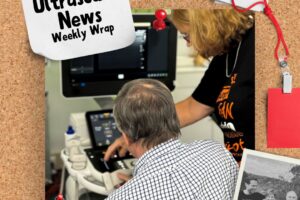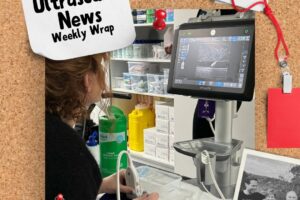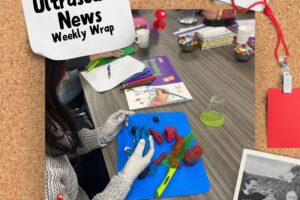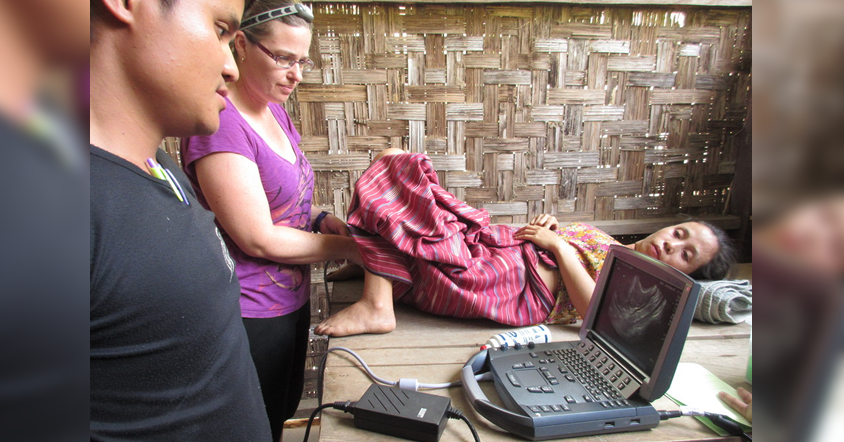
Ultrasound rumbles in the jungle: Why we do what we do
Imagine. You find yourself in the depth of a South East Asian jungle with no means of communication. On one side your path is cut by a flooded river; on the other you must run a gauntlet of check-points manned by troops protecting an unstable political situation. Add to this mix a woman presenting with pain and bleeding having been moved by a stretcher team over the course of three days– what do you do?
While this sounds like the clichéd plot of a Hollywood movie, this is the reality faced by Australian midwife Monica.
Monica, who Ultrasound Training Solutions (UTS) had the pleasure of hosting and sponsoring in mid-2014, volunteers at the Jungle School of Medicine (JSMK) in the jungle of South East Asia. The initiative of an organisation working in the area, JMSK arose out of a program to provide medical training to local students who could act as mobile support teams in conflict zones across their country.
The Jungle School of Medicine (JSMK)
In 2011 – with the support of a few charities – JMSK was established as a permanent teaching and medical facility; first to provide the local people with a self-sufficient health service, and second to serve as a pilot ‘proof-of-concept’ medical school program.
Despite ongoing socio-political issues, rudimentary facilities and the hostility of the geography, the JMSK now trains over 20 students per year, provides ancillary health services (including ultrasonography, X-ray, microscopy and other simple lab tests) and treats approximately 300 inpatients and 1,300 outpatients a year.
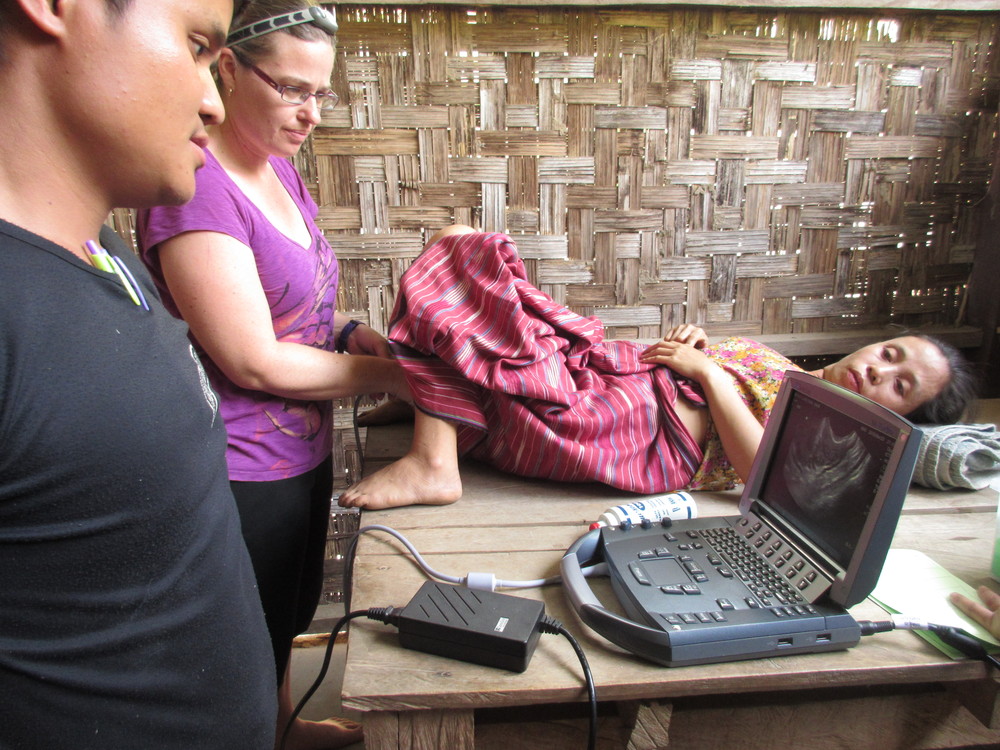
It was into this environment that Monica found herself working as a volunteer, utilising her medical skills to provide basic obstetric services. However, with a maternal mortality rate of 721 for every 100,000 live births, Monica recognised that formal training in ultrasound would have a significant and beneficial impact not just for her, but her patients and JMSK students.
Learning the ‘art-and-science’ of ultrasound
With this objective in mind, Monica participated in UTS’ three day Early Pregnancy Assessment for Nurses and Midwives August 2014 course, an intensive practical program designed to provide participants with core ultrasound competency and obstetric skills.
On completion of the course and return to the Jungle, Monica’s newly acquired skills took immediate effect.
I have been pretty much in the jungle with just one month out since I returned from Australia last year (2014). Almost every day I get out the ultrasound. Each time I do I hear your (Suean) voice and also that of (fellow educators) Oriana and Monica. It is very true to say that your course has greatly impacted and enhanced the work I am doing.
Fortunately on her return Monica found that a donor had supplied the JMSK with a new SonoSite M-Turbo with an endocavity probe – the same system she trained on at UTS, and a significant upgrade from the SonoSite 180 previously used.
It was incredibly exciting. Then the excitement almost faded as reality set in.
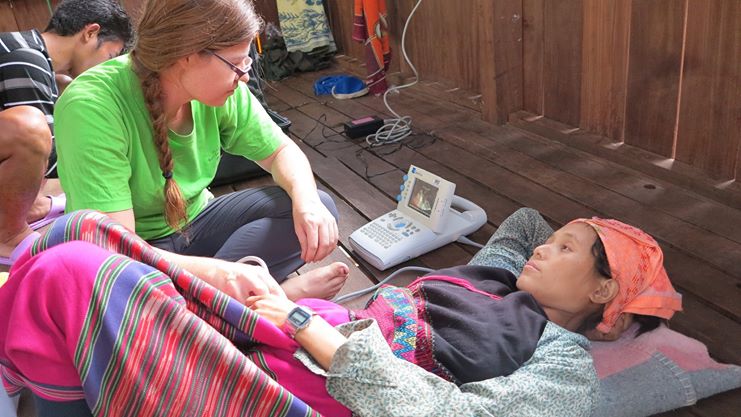
A case of ectopic in-extremis
That reality came in the form of a 22 year old woman who thought she was pregnant.
Several days earlier, the woman had presented to a remote clinical outpost with bleeding similar to a heavy period and intense left sided pain. With limited facilities and suspecting an ectopic pregnancy, the clinic arranged a cross-country transfer via hand carried stretcher for her accompanied by her mother, husband and children – a trek that would last three days and require the crossing of unsafe roads patrolled by the military.
Amazingly, the woman arrived alive and was immediately examined by Monica.
I was able to use the transvaginal probe for the first time in the jungle with reasonable confidence. This woman had all the classic symptoms of ectopic pregnancy: positive pregnancy test, severe left sided abdominal pain with some guarding and vaginal bleeding. I was able to confirm this on ultrasound; we saw adnexal fluid with a yolk sac and assumed embryo with no detectable cardiac activity.
Due to no detectable cardiac activity we made the decision to stabilise her and scan her again early the next morning. To manage surgically would mean a further day of being carried, a ride down the river to cross into the neighbouring country and a two hour drive to the hospital.
It was an agonizing 24 hours as we wondered whether we had made the right decision. The repeat scan the following morning was remarkably similar but with a slightly reduced level of adnexal fluid. The pain had decreased a little.
While the diagnosis in the end made little difference to the care she received, it was reassuring to know that we were able to make a diagnosis. Had we needed to refer her on urgently, it would have been of great benefit to the surgical facility to have that knowledge as she arrived.
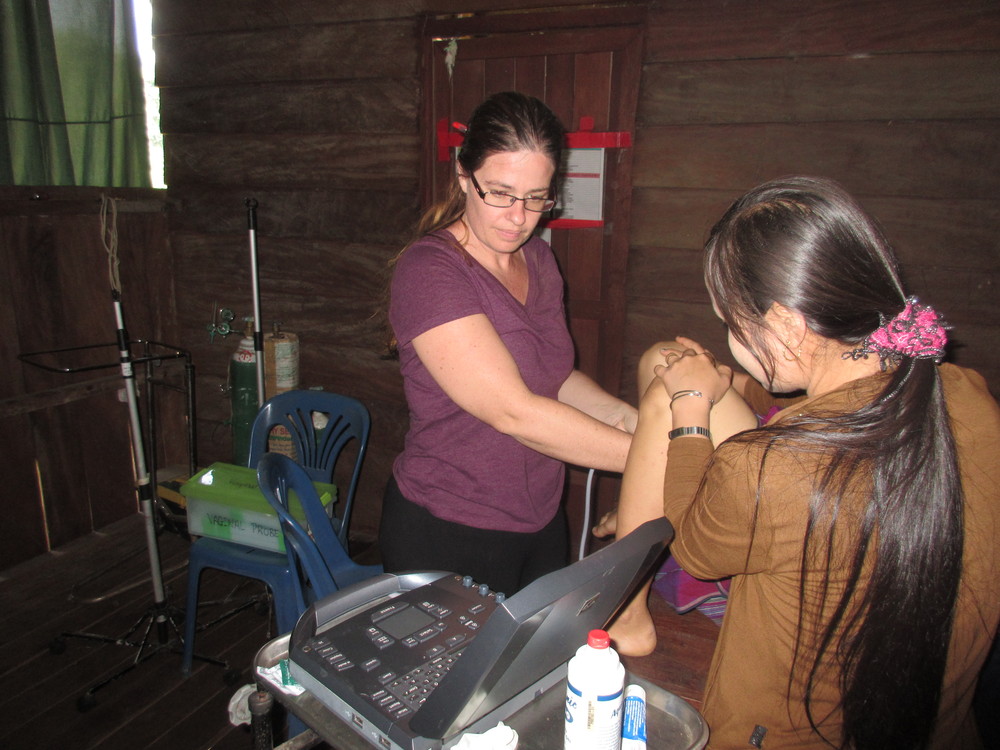
The skills, abilities and confidence Monica gained during her time with UTS meant she could confront and manage one of her biggest fears.
Ectopic pregnancy has long been a fear of mine in the jungle context and was my motivation in wanting to attend the (UTS) course. Being able to identify one successfully has given me faith in our ability to not just identify but to find a way of managing these women.
Patient management – no longer hocus POCUS
Thanks to the point of care ultrasound (POCUS) skills learned by Monica at UTS, the management of obstetric cases and complications is no longer guess work. The newly acquired practical knowledge has been consistently applied and made a real difference to the people the clinic serves.
We have confirmed pregnancies, identified (and) induced an IUGR baby. We have confirmed the presence of a viable foetus in the face of first trimester bleeding and diagnosed missed miscarriages.
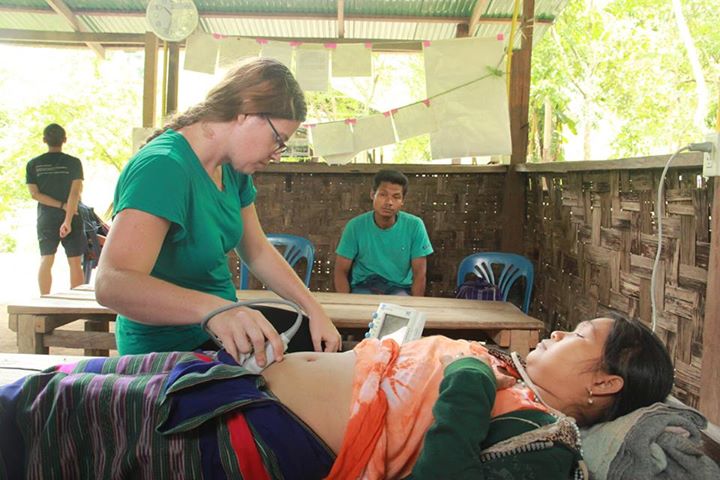
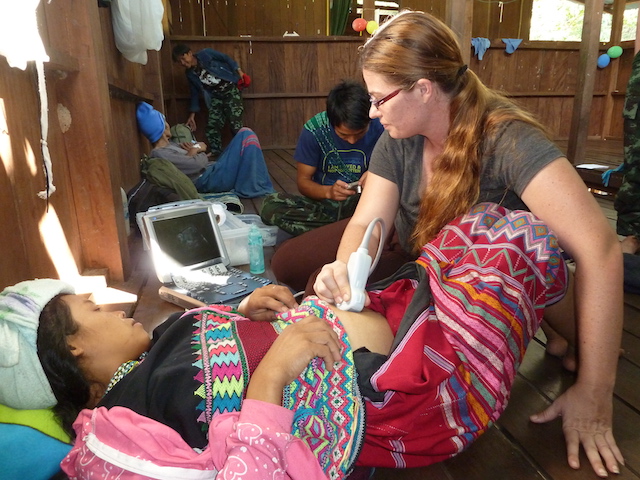
Monica is also ensuring that the people of the area will continue to benefit from her training over the long-term by passing the ultrasound ‘flame’ to JMSK medics, and training the future doctors of the region.
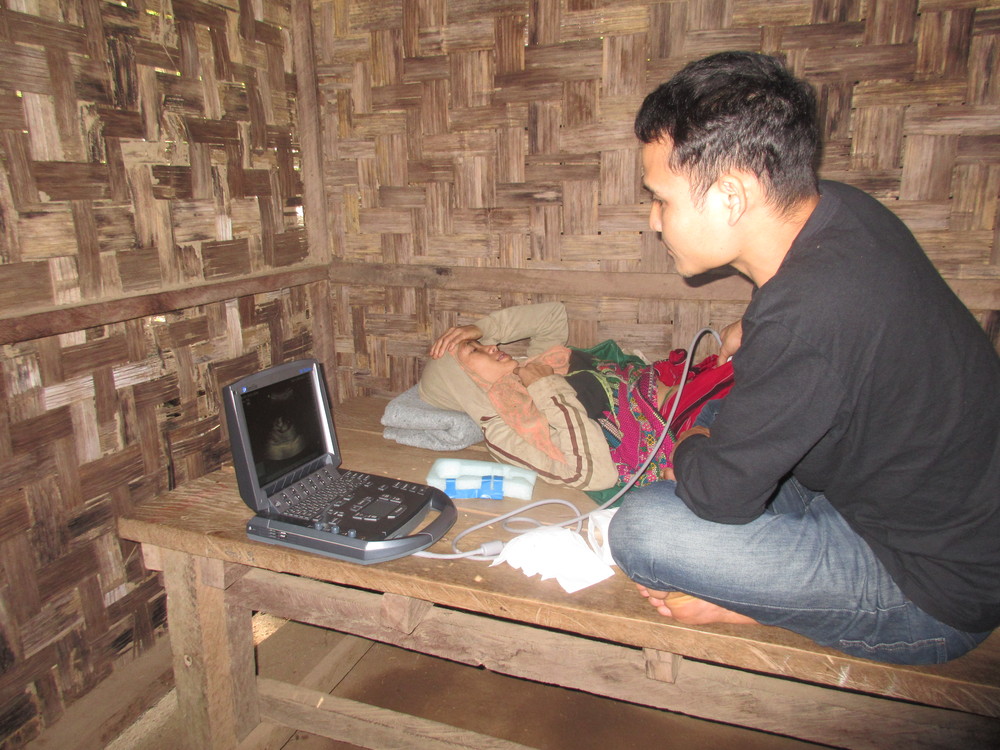
A big thanks!
While we won’t take all the credit, we’d like to think we have set Monica on the path to becoming a true sonographer with all the benefits that this will bring to her and her jungle community – we’ll let her words speak for themselves…
All that to say I am so grateful and thankful for the ultrasound training course you helped me attend. I rate this as one of the most fun, informative and productive ongoing professional education programs I have ever done.
Thank you Monica – you are the reason we do what we do 🙂

